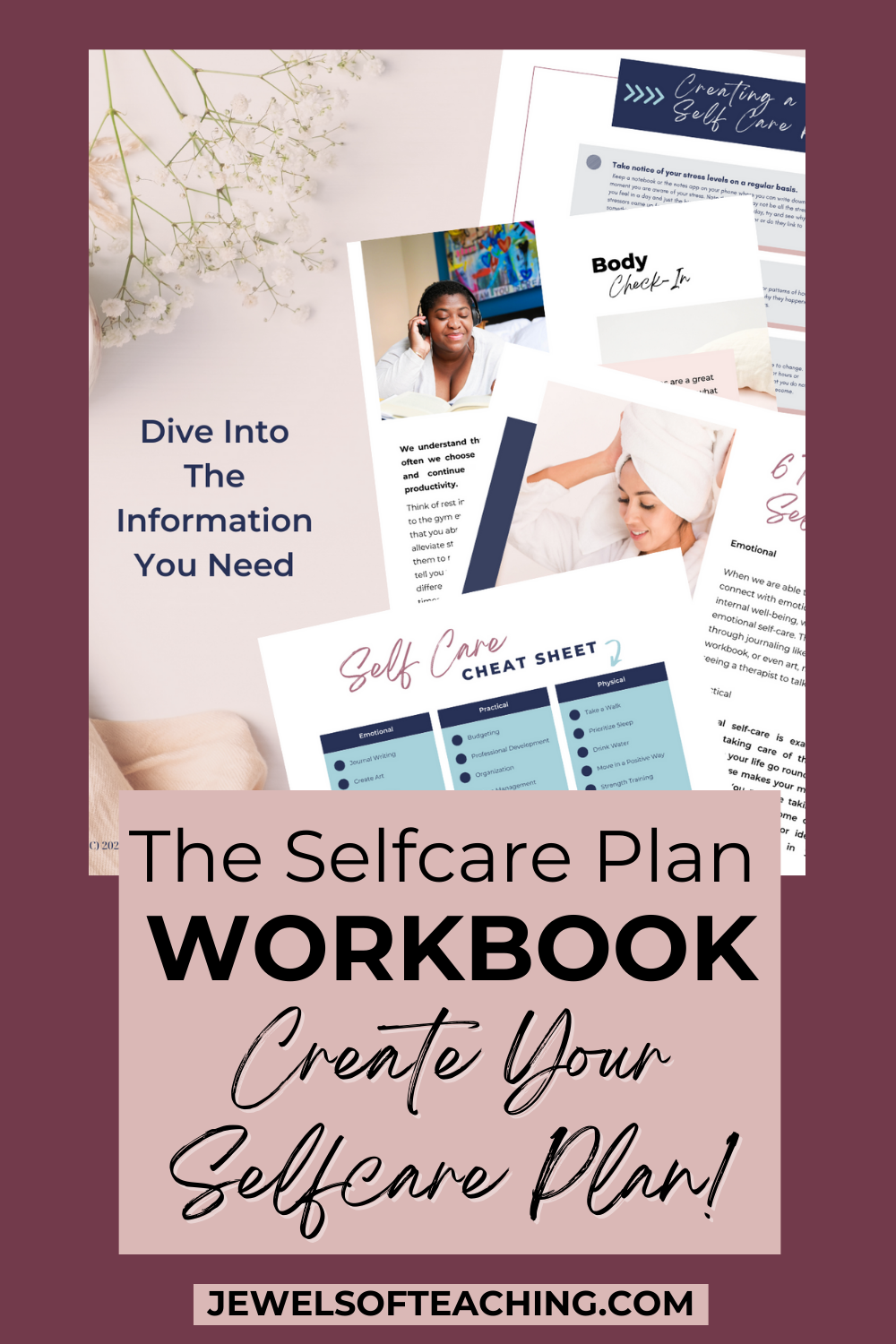How to Deal With Imposter Syndrome: 6 Practical Strategies

In part one of the Overcoming Imposter Syndrome series, you learned about basics: what this syndrome is, its most common symptoms, and tips for handling it.
This article (part two) goes into more detail about how to deal with Imposter Syndrome in everyday life - specific, practical strategies that busy online entrepreneurs can use to heal.
As we discuss these strategies, it's important to remember that Imposter Syndrome isn’t your enemy. It's just a way your brain and nervous system try to protect you from scary, negative experiences like humiliation, rejection, abandonment, or failure.
It's trying to keep you safe.
In this sense, it's not wrong. It's just time for a healthy strategy that allows for your flourishing.
Let's get into it.
6 Strategies to Recover from Imposter Syndrome
1. Build Self-Worth through Self-Love and Compassion
Cultivating self-love and compassion is potent medicine for imposter syndrome. It may be the most essential element.
Like self-love, self-compassion is a practice - and an art. You build the skill over time, which creates more self-loving awareness. And the more skilled you are, the better you get.
Practicing self-compassion starts with treating yourself with the same kindness and understanding you extend to a beloved person. I know this is hard because we're our own worst critics.
But think about it.
- What do you say to your beloved person when they experience a crisis of self-doubt or shame spiral?
- What kind of support do you give them or want them to have?
- Do you forgive their mistakes and imperfections, recognizing they're a natural part of human life? Do you remind them of all the good they do and bring to the world?
Now, look in the mirror and do this for yourself. Make it part of your daily routine for a while. See what happens.
2. Acknowledge the Problem and How It Makes You Feel
To solve a problem, it's vital to first acknowledge it.
You do this by recognizing your symptoms and their impacts on your business and life.
According to a Harvard Review article, three symptoms of Imposter Syndrome at work are:
- Fear that others have an exaggerated view of your capabilities
- A chronic pattern of downplaying your achievements and abilities
- Fear of being exposed as a fraud
When I see this list, three specific things pop into my mind: fear of rejection, fear of failure, and fear of success.
While it's normal to experience these fears at times, they shouldn't be chronic, control your actions, or trigger trauma responses.

3. Use Transformative Reflection
Transformative reflection is different from casual, passing thoughts. It's a focused, powerful technique in which you think deeply about something you care about.
Let's practice by journaling about an Imposter Syndrome Quiz. Ensure you have a few uninterrupted moments and keep things simple and doable.
Imposter Syndrome Quiz for Online Entrepreneurs
- Referring to the three symptoms, ask yourself if any of them show up for you regularly in a work situation.
- If so, which ones?
- Are there certain situations that provoke them?
- How do you usually respond? (negative self-talk, shame spiral, negative coping, feelings of worry or sadness, etc.)
- Can you think of any instances when they limited your potential or success?
- How do these experiences make you feel?
- Do any of them trigger trauma-based responses or intrusive thoughts?
When you're done, take a moment to breathe and experience how these insights make you feel.
Do they hurt?
If so, acknowledge what a big deal this is and affirm how much you want to take good care of yourself.
4. Cultivate Positive Mindset Through Challenge
Imposter Syndrome is a spider's web of negative self-talk, anxiety, and shame spirals that create significant barriers to any idea of a "positive mindset." However, its in-the-moment challenges present the greatest opportunities to cultivate positivity and resilience.
Here's how to do it effectively without veering into toxic positivity.
- Recognize your negative thought patterns as a cue to bring on the positive affirmation. In therapist-speak, this is known as "opposite action."
- Have a short list of 1-3 pre-prepared affirmations that are easy to say and remember. And yes - even one simple, thoughtful affirmation can work miracles!
- Each affirmation should speak directly to one of your negative thoughts.
- In addition, each should feel real. This means you should intuitively recognize the seeds of truth, not fantasy.
Here's an example:
One of your recurring thoughts could be, "I've never been good enough. Why should it be any different now?"
A realistic affirmation for this might be, "There have been many times when I've succeeded and been more than good enough."
5. How to Deal with Imposter Syndrome at Work: Make a Plan
If you're a planner like moi, this part can be well . . . a little exciting.
Why do I get excited? Because a plan, if thoughtful and well executed, could be a bright, new beginning of sorts. It could herald a new phase of growth - a breakthrough I've longed for. Put simply, it's a real-world SOLUTION that empowers change.
What might a plan for overcoming Imposter Syndrome look like? There are lots of options, but here's one idea:
Start with your quarterly goals. Which ones lead to "situations" or "tasks" that trigger imposter syndrome symptoms? For example, you have a sales goal to sell a new course to 75 people (goal). You need to market it on social media (situation/task). Social media marketing often causes extreme insecurity and discomfort (trigger). Because of this, you often minimize yourself or your content, especially when anyone compliments (symptom).
Could you do one thing to alleviate this response or use it for positive change?
Is the goal realistic, or is it too much of a stretch, causing self-doubt to intensify?
Do you have a 1-page self-care plan you can refer to for when symptoms show up?
What could your ready-to-use affirmations be?
6. Track your Achievements. Acknowledge Your Wins
Let's talk psychology for a sec.
When we're overcoming Imposter Syndrome at work, we're healing ourselves. But what part of our "selves" are we healing exactly?
We don't consciously request our brains to manufacture crappy thoughts and shame spirals that make us want to crawl under our desks and disappear. No, these responses are automatic and unconscious. They're part of our inner critic, also an unconscious part of us.
Einstein said, "No problem can be solved from the same level of consciousness that created it." If we want to heal an unconscious response, we need to gently persuade our unconscious that it's okay to change. It's okay to form healthy, new habits and responses.
Tracking your achievements and acknowledging your wins is a great way to do this.
This is because your mind constantly gathers data; it loves patterns and proof. So, let all your accomplishments - tiny and BIG - prove to both your conscious and unconscious that you're worthy of being confident, empowered, and accomplished.
So, how can you do it?
Online business owners I work with use all kinds of tracking tools: apps, spreadsheets, journals, and even stickers. You know, gold stars or something equally fun. To do this, note the achievement and slap a sticker beside it. Many say that it's more potent than filling out another spreadsheet cell or app when they do this.
- Why might this be? My educated guess? Could it be that using stickers allows you to track, acknowledge, and reward yourself - all at the same time? Stickers are also visual. They can serve as symbols that are personally meaningful to you. Your unconscious mind happens to communicate in symbols. (Maybe this is why we don't dream in text. We dream in visuals). Perhaps they connect with your inner child - offering a playful way for her to finally be "seen" and "heard." Maybe she's connected to your inner critic - and it's possible that your critic is actually more concerned with protecting her from pain - not you. For more on this theory and modality, see internal family systems.
Look to your Imposter Syndrome plan for inspiration about specific practices, accomplishments, habits, or affirmations you want to track.
How do you want to be seen, heard, and validated? (Isn't this the juicy question we've all waited for?)
Here are some examples of trackable achievements:
- I practiced my daily "Imposter Syndrome" affirmation.
- I did one thing today that reinforced my sense of well-being and flourishing.
- I took credit for my work, resisted the urge to diminish anything about myself or my work, or said, "Thank you!"
- I read about building self-worth.
- I interrupted a shame spiral using a stress management technique like getting into nature, journaling, doing positive movement, or taking a body break.
- I refrained from defaulting to a negative coping strategy (overeating, smoking, procrastinating, etc.)
- I practiced self-compassion with mirror work.
- I journaled about what my Imposter Syndrome plan might look like
- ETC
Figuring out how to deal with Imposter Syndrome is hard. But you don’t have to do it alone. This self-care plan will support you as you begin to address Imposter Syndrome.
Check Out the Self-Care Plan Woorkbook
Stay connected with the newsletter!
Join our newsletter to hear about my top tips for balanced CEOs and behind the scenes content. PLUS, you'll also receive the Stress Relief Toolkit right away.
We hate SPAM. Unsubscribe at any time.




